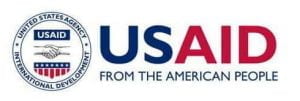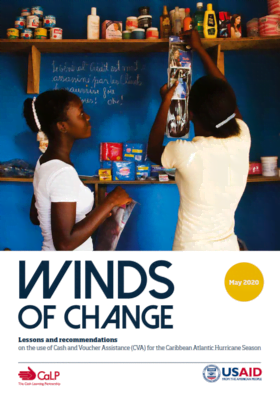Winds of Change: Lessons and Recommendations on the Use of Cash and Voucher Assistance (CVA) for the Caribbean Atlantic Hurricane Season
This briefing note has been commissioned by the the CALP Network in order to compile evidence on good practice and lessons learned to generate recommendations for humanitarian practitioners and other actors to take into consideration when designing cash and voucher assistance (CVA) in the Caribbean region. This briefing note is based on findings from 12 key informant (KI) interviews and a desk review of approximately 35 documents including evaluations, appeals, guidance and grey literature. The key lessons are structured by the CALP Network’s Programme Quality Toolbox categories with a focus on Caribbean specific considerations. The document is intended to be updated regularly and stakeholders are invited to share documents on the CALP Network library and reflections on the CALP Network discussion groups.
There is no shortage of CVA standards and guidance available on quality programming, coordination, preparedness, data sharing and protection, communications with affected populations and COVID-19. Overall lessons on CVA are applicable in the Caribbean and therefore are not included below (e.g., standards on CVA design such as transfer values, targeting, eligibility; setting clear roles and responsibilities for effective coordination; post distribution monitoring guidelines); the lessons below are focused on the aspects of the Caribbean context that are different from global lessons and best practice.

This document is made possible by the generous support of the American people through the United States Agency for International Development (USAID). The contents are the responsibility of the Women’s Refugee Commission and CARE and do not necessarily reflect the views of USAID or the United States Government.



